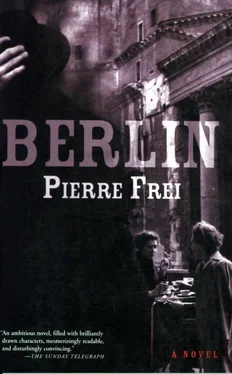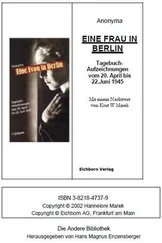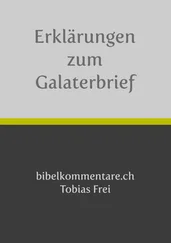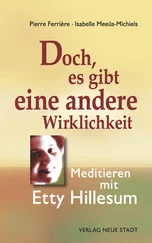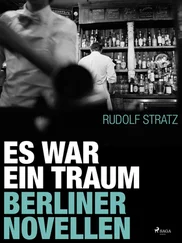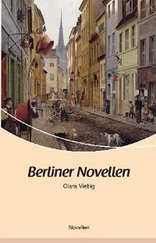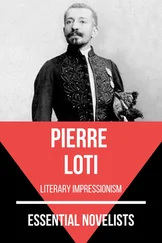A glimmer of enlightenment dawned on Ralf's angelic face. 'Sure. Pinecones in syrup. The things those Yanks will eat!'
Dr Hellbich appeared, and with delight picked a carton of Camels out of the cornucopia. Moments later a spicy cloud of Turkish tobacco hung in the living-room. 'SPAN,' his baffled wife read from a rectangular can. 'Is it something to eat, do you think?' The district councillor drew on his cigarette with pleasure, and did not reply.
'I'll fetch the can opener,' an unusually helpful Ralf told his grandmother.
'You don't need it for this one.' Ben had just come home. He broke off the little key that was welded to the lid of the can. Then he cleverly threaded the little flap on the side of the can into the slit in the tiny instrument and began turning the key. Before the astonished eyes of all present, a thin strip of metal unwound from the can. Ben rolled it around the key until he could lift the lid off. A solid pink mass of meat appeared. 'Spam,' he informed them casually. 'Short for spiced ham.' He knew about it from Mr Brubaker, who had made him a sandwich with this delicacy, adding pale yellow Heinz salad dressing, which oozed out of the sandwich to right and left at each bite.
Ralf stuck his finger in the can. His mother slapped his hand. 'Everyone will get a slice for supper.' She took the open carton, which now contained only nine packets of cigarettes, away from the disgruntled district councillor. 'I can get fifteen litres of cooking oil and two sides of bacon for this. It may even stretch to a few eggs too.'
Meanwhile, the others were puzzling over a can of peanut butter. Dr Hellbich translated 'pea' and 'nut' into German literally, marvelling. 'Heaven knows how they make butter out of peas and nuts. Must be some kind of substitute, like our chestnut coffee,' he said.
'Here comes Papa. Wow, will he ever be surprised!' Ralf said happily. His father propped his bicycle on the veranda and took off his cycle clips.
Inge was beaming. 'Darling, look at all these lovely things Mr Ashburner's sent us.'
'Pine-cones in syrup. Butter made from peas and nuts,' muttered Hellbich. 'These Americans really are barbarians.'
Klaus Dietrich just walked past his family in silence and climbed the stairs with a heavy tread. Inge anxiously watched his progress. 'Don't any of you dare open a can. We have to plan how best to use all these good things,' she warned them, before following her husband upstairs.
The inspector was lying on their bed, staring at the ceiling. Inge sat down beside him and took his hand. 'Klaus, what's the matter? Do you want to talk about it?'
'It just goes on and on,' he said softly.
She knew what he meant at once. 'Another murder? Oh, my God, poor woman.'
'Which poor woman?' he asked. 'The daughter he killed, or the mother when I had to tell her that her daughter had been murdered and dumped in a garbage bin?'
'I'm sure you broke the news as gently as possible.'
He laughed bitterly. 'Imagine she was concerned about me. It must be very hard on me too, she said, would I be all right?'
'It is hard on you, darling, I can see it is. Sleep for a little. I'll bring you up something to eat later. I saw a bottle of Mosel among Mr Ashburner's presents. We'll open that too.'
'I have to get him before he kills again,' muttered Dietrich. Then, exhausted, he fell asleep.
Herr Rodel's tailor's workshop was on the veranda of the house on Ithweg which he, his wife and Heidi shared with two other families. Only four window panes had survived the pressure waves of the bombing, the splinters raining down from anti-aircraft shelling and the Red Army's salvoes of machine-gun fire. The other fifty-six were covered with cardboard or celluloid that had originally been made for the windows of Wehrmacht military vehicles. Rodel had bartered several reels of sewing silk for this material; he needed plenty of light to work by.
'How I'm going to manage in winter is a mystery to me. You can't heat this place — no use sticking a hot stovepipe through the cardboard.'
'There's a piece of tin lying in our garden at home. You can have that,' Ben offered. If you cut a hole in it you could stick the stovepipe through.' Ben was dropping in more and more often. It gave him a sense of getting closer to his suit. He watched with interest as Rodel took apart a threadbare overcoat brought in by a customer to be turned.
'You wash the parts in cold water so the colour doesn't run. Then you iron them dry and put them together again inside out, and there's your new coat. Luckily I still have some horsehair and padding.'
'I hope you have some for my double-breasted suit too.' Ben could already see himself in that perfect suit, turn-ups of the trousers exactly five centimetres high, just brushing his suede shoes so that there was no more than the suggestion of a fold above them. He stroked the length of fabric in the cupboard, full of the pride of possession. It was the best pre-war wool, firm and soft, the classic, grey-brown pattern with a red thread woven into it. 'The English call it Prince of Wales check, don't they? I read that in a gentlemen's magazine.'
'Fingers off, young man. Business first.'
Ben took Mr Brubaker's carton of Camels out from under his shirt and put it on the tailor's table. 'That's three thousand Allimarks, right?'
'Two fifty.' Rodel noted it down with his tailor's chalk on the suiting, which already bore notes of previous instalments paid. 'You still need a lot of credit. Better hurry up, my boy. Herr Kraschinski next door is thinking of selling his watch to buy his son a suit for his wedding day.'
Ben was indignant. 'You can't do that, Herr Rodel. I've already paid you seven thousand, nine hundred marks.'
The tailor looked at him over the top of his glasses. 'I'll be happy to make you a top-quality suit, but I can't wait much longer. My wife needs shoes. And she's found a source of poultry and winter potatoes. That costs money. Yes, and we want a little real coffee for Christmas too.'
'Christmas is in December. This is August,' Ben reminded him. 'You'll get the rest really soon, I promise.'
But there was a long and arduous way to go between making that promise and keeping it. Although there were definite possibilities at the GYA in Bruckstrasse. Where there were Yanks, he knew from experience, there were good pickings to be had.
The ZehlendorfGYA Club was housed in a big villa. The Signal Corps colonel in charge had detailed a sergeant who knew a little German to be club leader. Sergeant Allen was a young sports teacher from Philadelphia who was able to arouse enthusiasm in his young charges, and he had immediately set up a baseball team. Ben hung around the club and kept his eyes open. You just had to have patience.
His patience was rewarded a few days later when an army delivery truck brought several cartons. Ben read the labels with growing interest. 'Mars Bars, 250' one of them said. Another, according to its label, contained 300 Sunshine Marshmallows, and a third 500 Hershey Bars, chocolate and hazelnut flavour.
These riches came from the Catholic garrison chaplain, Major Baker, who had generous donations from home at his disposal. Baker was a regular guest at the club. 'He says he'll start handing out some of the stuff from those cartons next week,' said one club member. 'Only after his Bible class, of course.' The man of God was a realist.
Under Sergeant Allen's supervision, Herr Appel took the cartons off the delivery truck. Herr Appel, who looked after the building, was a greyheaded man with a short parting in his hair and bulging eyes. Like all German employees of the Americans, he wore a dyed army uniform. He had been caretaker of a boys' school until it was demolished by Russian rocketlaunchers. Appel didn't speak a word of English, not that anyone noticed, since he hardly spoke at all. He became talkative only on the subject of his allotment; he was chairman of the South-West Allotment Gardeners' association.
Читать дальше
